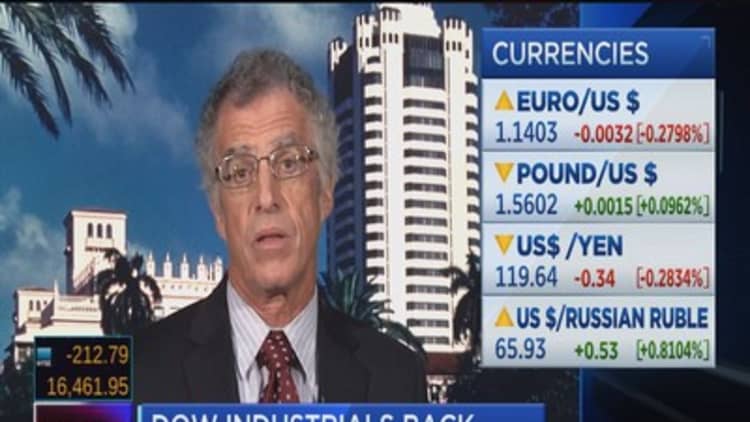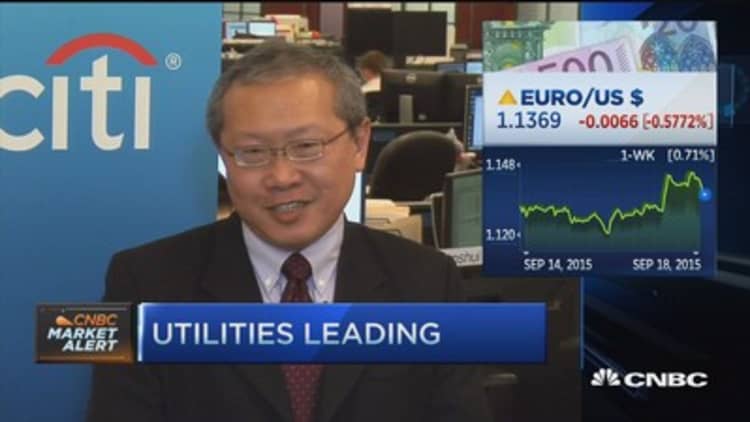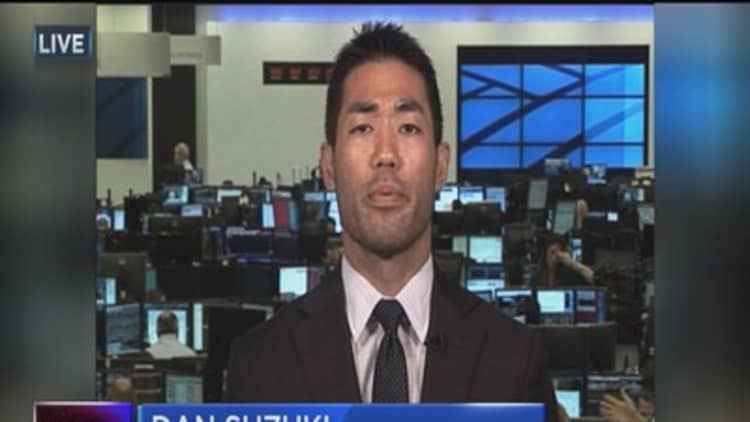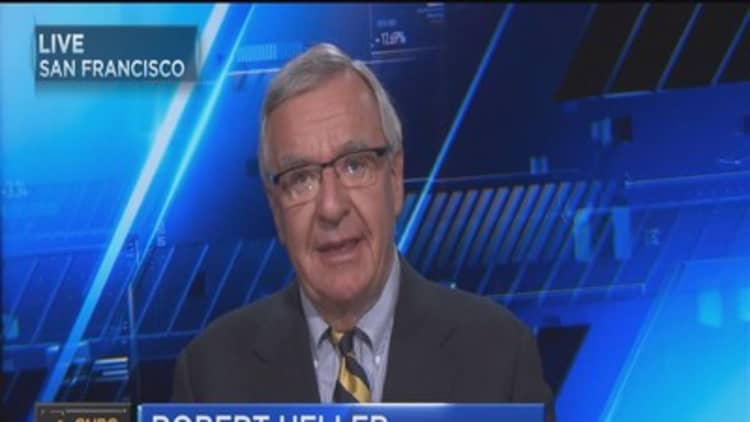



Frederic Mishkin, a former Fed governor and current Columbia University professor of economics, said on Friday that the Fed has a serious problem in how it communicates its message.
"The key is clarity," he told CNBC's "Squawk on the Street." "If you're going to do something, say what you're going to do and actually mean it."
Mishkin took issue with a dovish statement that indicated no hike in September yet said one was inevitable sometime this year. "And I think that's inconsistent with the message that is in the statement, and that inconsistency is creating uncertainty and that could hurt the economy."
"If they didn't move at this meeting, why should they move at the next two meetings?" he asked.
William Lee, head of North America economics at Citi, said on Friday that he doesn't believe that the Fed held back from a hike due to worries about the Chinese economy.
"I don't believe China is the excuse; I think it's the cover-up," he said on "Squawk Alley." "I think there is another reason behind it, and maybe we will find out what the reaction function will be."
Lee said that the committee members probably did not have much confidence in inflation targets.
In the meantime, investors will stay away from risk until the Fed makes some clear moves, said Dan Suzuki of Bank of America Merrill Lynch.
"There's a lot of concern in what the shift in monetary policy is going to do, and what the impact of rising rates is going to be on emerging markets, on currencies and commodities," he said on Friday. "But the main implication of that is that investors don't want to take on a lot of risk ahead of that change in policy."
Suzuki said that markets could see some volatility in cheap cyclicals until the Fed's actions become clearer.




